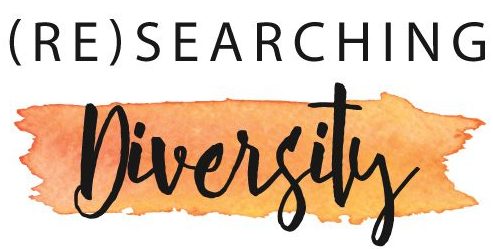Marta Miklikowska: Prejudice and intergroup contact || Women in academia
In this episode, we talked to Marta Miklikowska who is an Associate Professor of Psychology at Umeå University (Sweden). Our main topics are prejudice, intergroup contact, and how activism and progressive policies can improve the representation of women in academia.
PAST (00:01:35): Marta tells us about her own experiences with migration, prejudice, and the imposter syndrome in a male-dominated profession. She also elaborates the current situation of woman in academic leadership positions and gives some advice for young researchers on how to navigate the early years in an academic career.
PRESENT (00:15:45): We discuss the article by Dixon et al. (2012) on new directions in research on prejudice and intergroup contact and how we can formulate research questions that bring us closer to creating more just, equal societies.
FUTURE (00:30:00): Marta talks about the positive effects of female faculty, about tackling gender inequalities through progressive policies, and about the power of activism and collective action.
Full references of this episode’s sources and articles:
Bettinger, E. P., & Long, B. T. (2005). Do Faculty Serve as Role Models? The Impact of Instructor Gender on Female Students. American Economic Review. https://www.aeaweb.org/articles?id=10.1257/000282805774670149
Bondestam F. & Lundqvist, M. (2020). Sexual harassment in higher education – a systematic review. European Journal of Higher Education. https://www.tandfonline.com/doi/full/10.1080/21568235.2020.1729833
Bornmann L., et al., (2007). Gender differences in grant peer review: A meta-analysis. Journal of Informetrics. https://www.sciencedirect.com/science/article/abs/pii/S1751157707000363
Bredaa, T. et al., (2020). Gender stereotypes can explain the gender-equality paradox. Proceedings of the National Academy of Sciences. https://www.pnas.org/content/117/49/31063.short?rss=1
Carli L., (2016). Stereotypes About Gender and Science: Women # Scientists. Psychology of Women Quarterly. https://journals.sagepub.com/doi/full/10.1177/0361684315622645
*Dixon, J., Levine, M., Reicher, S., & Durrheim, K. (2012). Beyond prejudice: Are negative evaluations the problem and is getting us to like one another more the solution?. Behavioral and Brain Sciences, 35(6), 411-425. https://doi.org/10.1017/S0140525X11002214
Folke, O. & Rickne, J. (2020). Sexual Harassment and Gender Inequality in the Labor Market. London, Centre for Economic Policy Research. https://cepr.org/active/publications/discussion_papers/dp.php?dpno=14737
Holman, L. et al., (2018). The gender gap in science: How long until women are equally represented? PlosBiology. https://journals.plos.org/plosbiology/article?id=10.1371/journal.pbio.2004956
Leslie, S. J., et al., (2015). Expectations of brilliance underlie gender distributions across academic disciplines. Science. https://science.sciencemag.org/content/347/6219/262
Moss-Racusin et al., (2012). Bias against females among faculty members in the US. Proceedings of the National Academy of Sciences. https://www.pnas.org/content/109/41/16474
O’Dea, R.E., et al. (2018). Gender differences in individual variation in academic grades fail to fit expected patterns for STEM. Nature Communications. https://doi.org/10.1038/s41467-018-06292-0
Wenneras C, & Wold A., (1997). Nepotism and sexism in peer-review. Nature. https://www.nature.com/articles/387341a0




